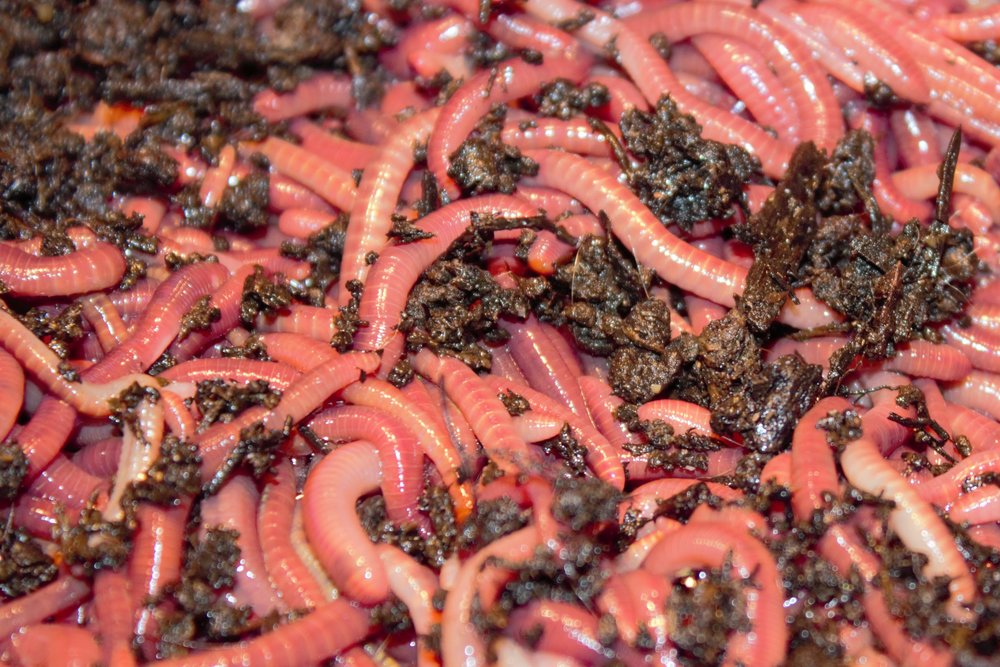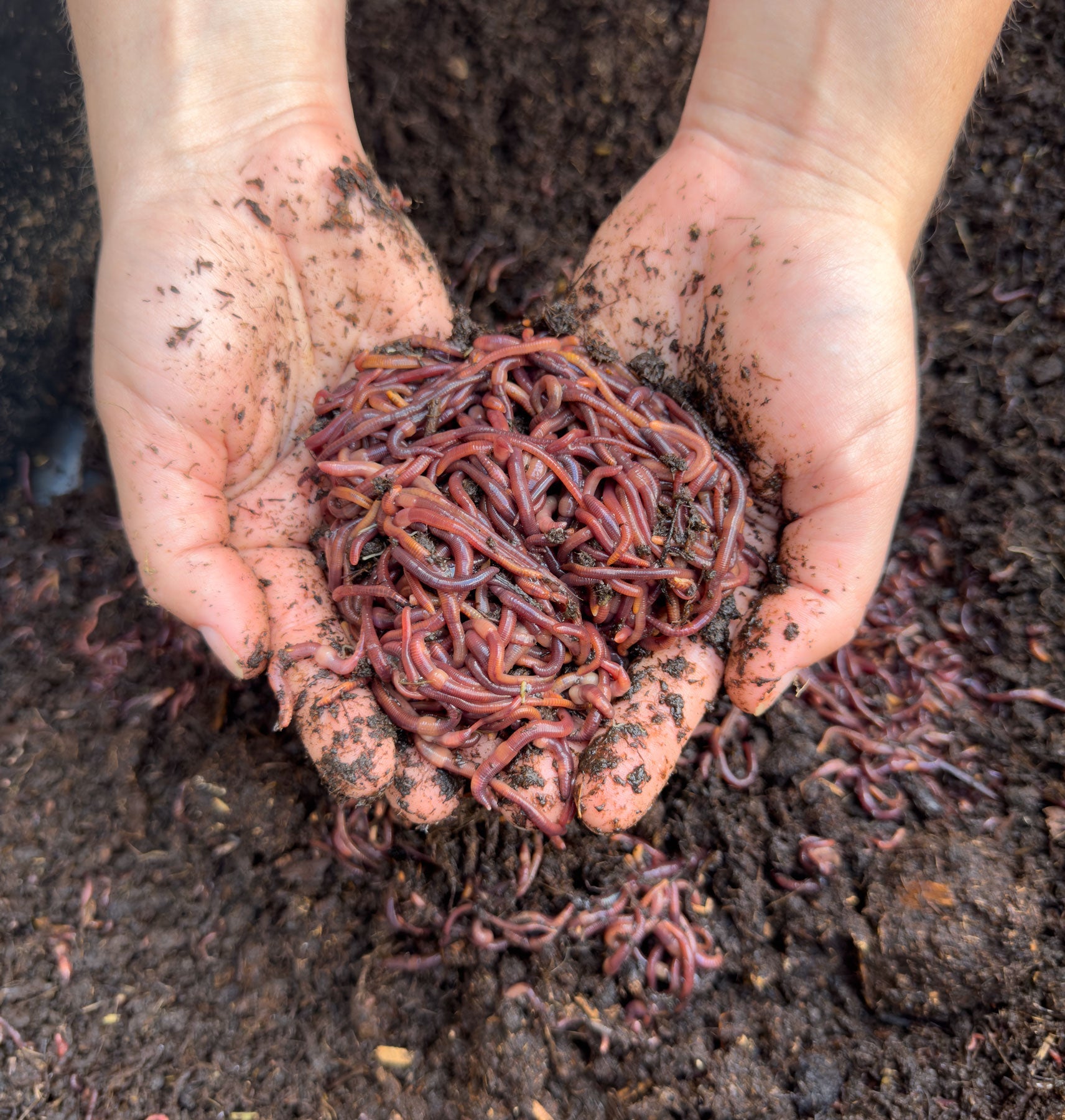Live red wigglers: Top choices for your composting needs
Live red wigglers: Top choices for your composting needs
Blog Article
Why Red Wigglers Are Vital for Natural Farming
Red wigglers play a crucial duty in chemical-free farming, primarily through their special capacity to decompose organic materials and enhance soil health and wellness. Their task not just enriches the dirt with vital nutrients however also promotes a successful environment crucial for sustainable agriculture. The physical processes they involve in, such as oygenation and moisture retention, add substantially to boosted plant yields. The degree of their effect on agricultural practices and dirt biology increases intriguing inquiries about the future of organic farming. red wigglers. What effects might this have for farming methods?
Function of Red Wigglers in Soil Health

In addition, red wigglers enhance soil framework by producing channels as they burrow. These channels boost aeration and water infiltration, promoting a much healthier root environment. Their task also helps in keeping optimum moisture degrees, which is crucial for healthy and balanced plant growth.

Advantages of Worm Spreadings
Worm castings, the nutrient-rich waste matter produced by red wigglers, work as a powerful modification for chemical-free farming. These spreadings are abundant with crucial nutrients such as nitrogen, phosphorus, and potassium, which are important for plant growth. Unlike artificial fertilizers, worm castings release nutrients gradually, offering a consistent supply gradually and reducing the risk of nutrient leaching and drainage.
Furthermore, worm spreadings improve dirt structure and aeration, advertising healthier root systems. Their high natural matter material boosts moisture retention, enabling plants to better withstand dry spell conditions. In addition, worm spreadings contain valuable bacteria that support plant health by subduing virus and improving nutrition uptake.
The application of worm castings can cause enhanced plant returns and boosted quality of fruit and vegetables, making them a vital resource for organic farmers. Their use also straightens with lasting farming practices, contributing to soil fertility without the adverse environmental impacts connected with chemical plant foods. On the whole, the unification of worm spreadings into agricultural practices fosters an extra resistant and productive ecological community, emphasizing the value of red wigglers in chemical-free farming systems.

Enhancing Nutrient Cycling
(redworms for composting)Nutrient biking is a crucial process in chemical-free farming, and the combination of red wigglers plays a pivotal function in improving this cycle. These earthworms add dramatically to the malfunction of raw material, helping with the improvement of complicated natural materials into less complex, extra accessible nutrients for plants. As red wigglers consume decomposing raw material, they eliminate nutrient-rich castings, which are including valuable microbes. This microbial activity more aids in the decomposition process, guaranteeing that essential nutrients are conveniently available for plant uptake.
Moreover, red wigglers assist to increase the mineralization of nutrients, transforming them from inert forms right into bioavailable types that plants can soak up. This procedure is vital for maintaining dirt fertility and advertising healthy and balanced crop growth. The presence of red wigglers likewise encourages a varied dirt community, cultivating a balance of nutrients that supports different plant varieties.
Improving Dirt Structure
The enhancement of dirt framework is crucial for fostering a healthy farming ecosystem, and the activity of red wigglers dramatically contributes to this renovation. These earthworms play a necessary function in aerating the dirt and creating a network of networks that help with water infiltration and origin infiltration. As they tunnel through the dirt, red wigglers separate compressed layers, permitting better oxygen exchange and advertising microbial task.
Furthermore, the raw material created from their waste, known as vermicast, enhances dirt aggregation. This procedure produces stable globs of soil bits, boosting soil porosity and minimizing disintegration (red wigglers). The existence of red wigglers likewise urges the growth of useful fungal networks, which are essential for nutrient uptake by plants
Supporting Sustainable Practices
Integrating red wigglers right into organic farming practices not just boosts soil health and wellness but likewise promotes lasting farming methods. These earthworms play an essential function in nutrient cycling, transforming organic waste right into beneficial compost that improves the dirt. By making use of red wigglers, farmers can efficiently reduce reliance on synthetic plant foods, therefore lessening chemical runoff and its detrimental results on communities.
Additionally, the consolidation of see post red wigglers motivates the practice of recycling natural materials, such as cooking area scraps and farm waste. This waste decrease technique not only lowers disposal costs but additionally cultivates a closed-loop system where nutrients are constantly gone back to the dirt (red wigglers). Such techniques are important in alleviating climate adjustment, as they enhance carbon sequestration and minimize greenhouse gas exhausts
Additionally, red wigglers improve water retention in the dirt, which is important in times of drought. Their burrowing tasks produce channels that permit water to penetrate much deeper into the ground, therefore promoting reliable water usage. Eventually, incorporating red wigglers into organic farming not only supports biodiversity yet also straightens with the concepts of sustainable agriculture, supplying an alternative method to food manufacturing.
Conclusion
In conclusion, red wigglers play an important duty in natural farming by significantly boosting dirt wellness and fertility. Their ability to break down organic issue and produce nutrient-rich spreadings promotes a thriving microbial area, which is important for nutrition cycling. Furthermore, the burrowing tasks of these worms boost dirt structure and aeration, promoting far better water seepage and root development. Hence, the assimilation of red wigglers into farming techniques is essential for promoting sustainability and enhancing overall dirt quality.
Report this page